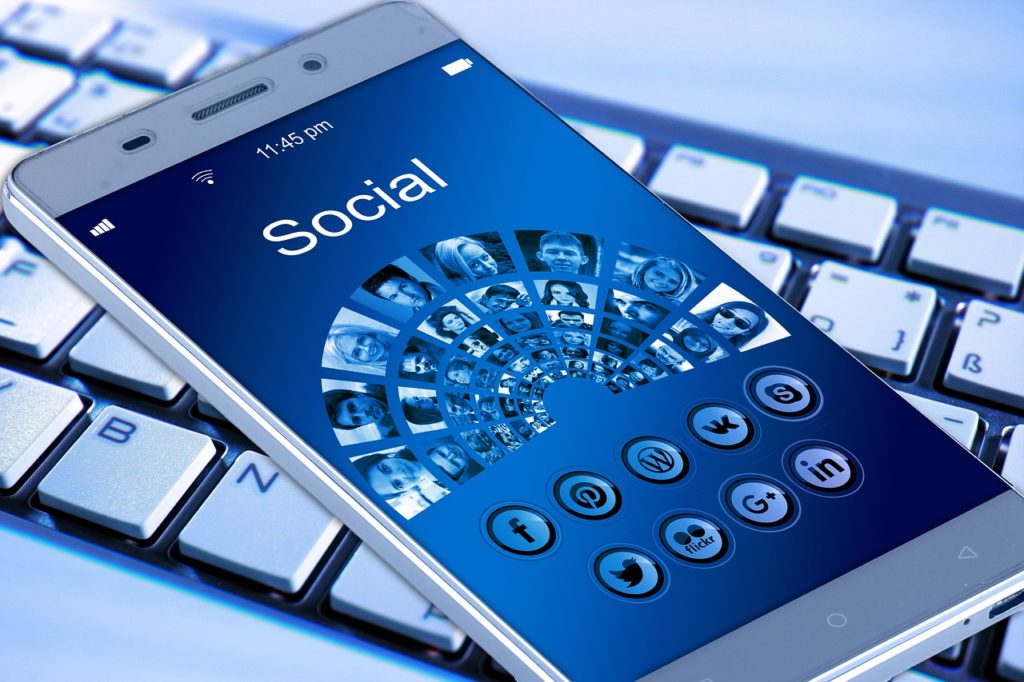
Social media has truly revolutionized the way we interact and engage with each other, streaming communication in an almost instantaneous way. Individuals across the globe rely heavily on social media not only for personal interactions with others but as a method for keeping up with daily activities, business, world news, trending reports and more.
More people are likely to discover things on social media today than other traditional forms of communication, and individuals across the age groups are using one or more social media platform.
Accessing Social Media
According to research statistics, some of the main reasons individuals are utilizing social networks, such as Facebook, Twitter, Instagram and more are for staying in touch with current friends and family members, connecting with old friends, connecting with others with shared hobbies or interests, making new friends, following a particular athlete, politician or celebrity, or finding networking/job opportunities.

The Pew Research Center has estimated that almost 75 percent of online adults are using social networking sites, with 40 percent of cell phone owners using a social networking site on their phone [1].
With social networking literally just a finger tap away with cell phone and internet access readily available, it is easy to see how influential social media and networking has become.
Many people may not fully realize how significant social media has become in their daily lives, and the interactions and relationships that are influenced through social media networking.
Creating a New Reality
Social media also has the power to create an altered form of reality, in where it is easy to craft an image that you want others to best identify with. For example, a person can post pictures that have been filtered or edited and/or purposefully share only the best sides of themselves to fashion a certain image of themselves.
With all the positives that are available with social media use, there are many negative influences as well. For the person who might be in recovery from an addition to prescription drug use, it is important to understand the pros and cons of social media networking to determine how these sites are serving the overall recovery efforts.
For the person who is struggling through life as they make their way through recovery, social media can be a difficult place to find a voice, place, and validation, particularly when other users are attempting to create the best image of themselves.
Using Social Media Positively
However, when used intentionally, social media can also be used as a positive influence for someone in recovery from prescription drug addiction. Considering the ability and potential to network, if used correctly, a person can find and connect to much needed support through social media platforms.
If you have been struggling with maintaining your recovery from an addiction to prescription drugs, consider the role that social media is currently playing in your life.
 How frequently are you utilizing these platforms, and for what purpose are you spending your time on social media? If your answer to these questions are not supportive of your recovery efforts from prescription drugs, you may need to reconsider the amount of time you are spending on social media.
How frequently are you utilizing these platforms, and for what purpose are you spending your time on social media? If your answer to these questions are not supportive of your recovery efforts from prescription drugs, you may need to reconsider the amount of time you are spending on social media.
Many forms of online support for addicts in recovery exist through social media, and using social networks in this way can be supportive of your own recovery.
Finding Facebook pages that support sobriety for example, private Facebook groups that offer addiction support and accountability, pro-recovery Pinterest boards, Instagram accounts that offer daily inspiration in addiction recovery, etc., are just some of the ways that social media can be used in a positive way in addiction recovery.
Being intentional about how you are using social media is the first step towards using a powerful force in a positive way. If social media was used as part of your addiction, or if you find that you are triggered by various accounts you are following or connections you have, consider taking a break to solidify your recovery.
Remember that social media does not take the place of professional help and treatment that is truly needed to support your recovery efforts from prescription drug addiction.

About the Author: Crystal is a Masters-level Registered Dietitian Nutritionist (RDN) with a specialty focus in eating disorders, maternal/child health and wellness, and intuitive eating. Combining clinical experience with a love of social media and writing, Crystal serves as the Special Projects Coordinator for Eating Disorder Hope/Addiction Hope, where her passion to help others find recovery and healing is integrated into each part of her work.
As a Certified Intuitive Eating Counselor, Crystal has dedicated her career to helping others establish a healthy relationship with food and body through her work with EDH/AH and nutrition private practice.
The opinions and views of our guest contributors are shared to provide a broad perspective of addictions. These are not necessarily the views of Addiction Hope, but an effort to offer discussion of various issues by different concerned individuals.
We at Addiction Hope understand that addictions result from a combination of environmental and genetic factors. If you or a loved one are suffering from an addiction, please know that there is hope for you, and seek immediate professional help.
Updated & Reviewed By: Jacquelyn Ekern, MS, LPC on February 29, 2016
Published on AddictionHope.com

